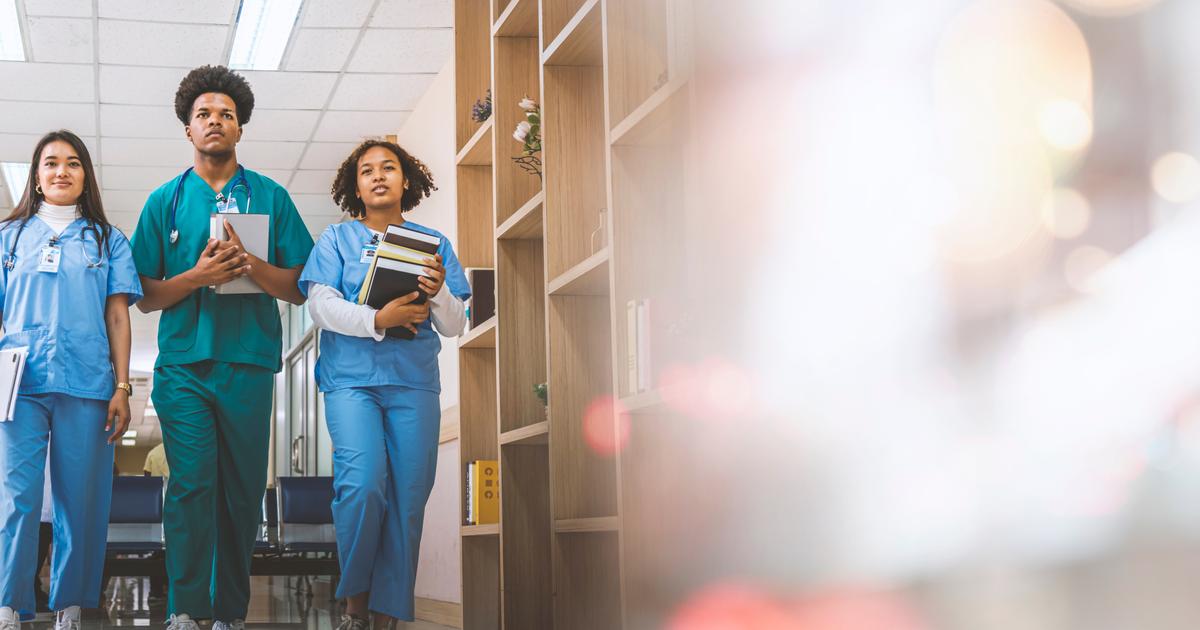From the beginning of February, Emmanuel Macron let it be known: he wanted progress on monoclonal antibodies and said he was ready to pay the price.
After Germany, which has already bought 200,000 doses, at the end of January, it is now France's turn to bet on this "therapeutic novelty", bearer of hope, as Olivier Véran named it this Thursday evening. , the Minister of Health.
Eighty-three hospitals have already received "thousands" of doses of this drug at 2000 euros per unit, reserved for 80 years and over and people suffering from immunity disorders, in order to prevent severe forms of Covid.
By mid-March, new antibodies will arrive in France, dedicated "I hope", the minister said with caution, to a wider audience.
After being eclipsed by vaccines, treatments are therefore returning to the fore.
For the first time, this Wednesday, the National Medicines Safety Agency granted temporary authorization for the use of a monoclonal antibody, its name: bamlanivimab from the American group Eli Lilly.
This type of experimental treatment, from which the former President of the United States Donald Trump benefited in November, consists of isolating a particular antibody from patients who have had Covid, reproducing them in large quantities in the laboratory and injecting them. in order to avoid severe forms.
VIDEO. Are monoclonal antibodies a future treatment against coronavirus?
To be effective, the infusion, administered in the hospital, must take place within five days of the onset of symptoms.
"In the coming days, severe renal insufficiency, dialysis patients, kidney transplant recipients should, if they are positive for Covid, contact their attending physician to receive these treatments as quickly as possible", warns Yvanie Caillé, founder of Renaloo, association dedicated to kidney patients.
If the news is greeted with enthusiasm by patients, especially those who have still not been able to be vaccinated even though they are a priority, Yvanie Caillé remains measured: “It's encouraging but we still lack data.
"
Not effective against all variants
On the side of scientists, opinions are somewhat divided.
According to Hervé Watier, professor of immunology, who has been working on monoclonal antibodies for twenty years, this announcement is good news.
“France is right, it was time to get started, the first authorizations were given in the United States in November.
"This therapy is already well known and about a hundred monoclonal antibodies are already on the market" used in many cancers, inflammatory diseases, some are already approved against migraine or cholesterol, they treat many pathologies.
"
Morning essentials newsletter
A tour of the news to start the day
Subscribe to the newsletterAll newsletters
Regarding Covid, is bamlanivimab effective against variants?
This is the whole point.
“On the British, yes but a priori not on the South African and Brazilian, he explains.
That's not bad!
"Frank Perez, research director at the CNRS, also considers" this targeted therapy promising ".
As for Frédéric Adnet, the emergency manager of the Avicenne hospital in Bobigny (Seine-Saint-Denis) and a researcher at Inserm, he is much more reserved.
The results of two studies on reducing viral load have been disappointing.
"The positive effects are mostly described in press releases," reports this expert in clinical trials.
This communication on the arrival of treatment is a little rushed.
"






/cloudfront-eu-central-1.images.arcpublishing.com/prisa/ZYVWPUV4FBG5ZNEQFUECW6PXNM.jpg)


